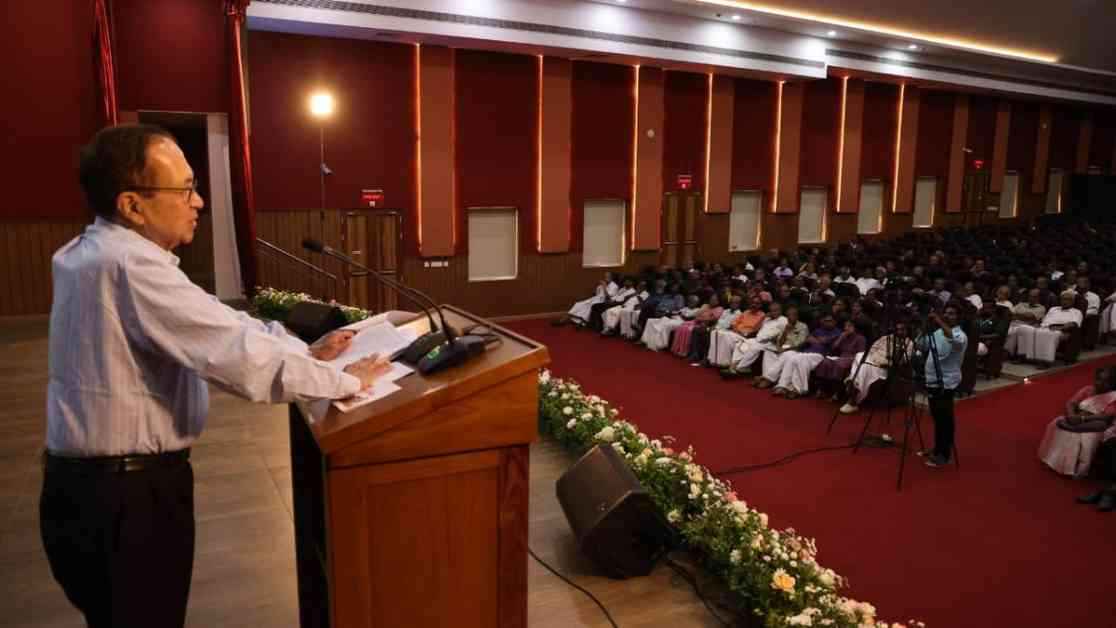India’s Press Freedom Under Threat: N. Ram Speaks Out
N. Ram, the esteemed Director of The Hindu Group, delivered a powerful message at the conclusion of the Peruma Talks in Pinarayi, Kannur. His words echoed the concerns of many as he highlighted the troubling trend of diminishing press freedom in India.
In a bold statement, Mr. Ram accused the Central government of orchestrating a systematic assault on freedom of expression, press independence, and civil liberties. He expressed deep concern over the government’s use of anti-terror, sedition, and other oppressive laws to silence journalists, students, human rights activists, and government critics. These individuals often find themselves behind bars without bail or fair trial for prolonged periods, painting a grim picture of the state of democracy in India.
The Decline in Press Freedom Ranking
Mr. Ram drew attention to a troubling trend that has unfolded since 2014 – a consistent decline in India’s global press freedom ranking. According to the latest World Press Freedom Index, India now ranks 159 out of 180 countries and territories. Despite the government’s attempts to refute these rankings, Mr. Ram challenged them to provide a compelling explanation for this decline. The stark reality, he emphasized, cannot be ignored.
The Use of Surveillance Technology
One of the most alarming revelations made by Mr. Ram was the government’s alleged use of the Israeli military-grade spyware Pegasus for illegal surveillance on journalists, politicians, civil society members, and others. This flagrant violation of privacy and democratic norms raises serious concerns about the erosion of fundamental rights in India. The unchecked use of surveillance technology poses a threat to free speech and undermines the very foundations of democracy.
Crackdown on Digital Platforms
Mr. Ram also shed light on the government’s efforts to tighten its grip on digital platforms through legislation such as the Digital Personal Data Protection Act and the Broadcasting Services (Regulation) Bill. These measures, he argued, are part of a broader campaign to regulate and censor the internet, digital news providers, social media, and streaming platforms. At a time when traditional print journalism is waning and many journalists are turning to alternative platforms due to economic challenges and repression, these new laws pose a direct threat to freedom of expression.
In conclusion, Mr. Ram’s impassioned plea for the protection of press freedom serves as a stark reminder of the vital role that a free and independent press plays in a democratic society. As India grapples with growing challenges to its press freedom, it is imperative that citizens, journalists, and policymakers alike stand up to defend the principles of democracy and ensure that the voices of the marginalized and oppressed are not silenced. Let us heed Mr. Ram’s words and take action to safeguard the fundamental rights that form the cornerstone of our democracy.














